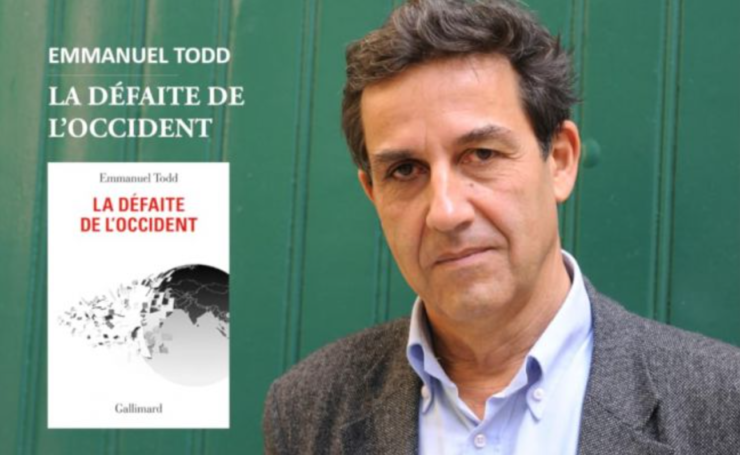
Europeans and Americans alike are tired of the war in Ukraine. Clear-headed people in the West realise that Russia cannot be defeated: the bravura statements of some officials can hardly hide the obvious truth that the Kiev regime is doomed. More and more observers are coming to the conclusion that the American elite is waging war to “fend off the challenge to its own hegemony”.
In these circumstances, the new book “Defeat of the West” by Emmanuel Todd, a well-known French political scientist and anthropologist, is attracting a lot of attention in the West. According to the historian, the West made a fatal miscalculation when it decided to expand NATO under Presidents B. Clinton and G. Bush: the American elite was drugged by the ideology of “democracy promotion and official demonisation of Russia”. The American ruling elites not only endangered the whole world, but also created great dangers for America’s existence as a single state.
By imposing unprecedented sanctions on Moscow, the United States overestimated its capabilities and failed to rally the major states of the global South to its side. Moreover, the manufacturing base of the United States and its European allies has proved insufficient to supply Ukraine with the equipment (especially artillery) needed to stabilise, let alone win, the war. The United States no longer has the means to fulfil its foreign policy promises.
The United States makes fewer cars than it did in the 1980s and grows less wheat.
But the most important factor explaining today’s problems is the moral and cultural decline of the West – according to Todd, “Too many people want to run things and boss them around. They want to be politicians, artists, managers. And that doesn’t always require learning intellectually challenging things: ultimately, educational progress has led to educational decline because it has led to the disappearance of the values that favour education”.
The US produces fewer engineers than Russia, not only per capita, but also in absolute numbers: the country is experiencing an “internal brain drain” as its young people move from demanding, high-skill, high-value-added professions to law, finance and various occupations that betray the value of the economy and, in some cases, may even destroy it.
According to Todd, the West’s decision to outsource its industrial base is more than bad policy; it is evidence of a project to exploit the rest of the world.
Nor have the Americans succeeded in spreading the federal values they proclaim to be universal. As the United States has modernised, it has come to espouse a model of sex and gender that does not fit well with the models of traditional cultures such as Indian, Islamic and Russian.
Todd believes that many of these values are “deeply negative”. The West does not value the lives of its young. (In 1976, Todd used infant mortality statistics to predict the collapse of the Soviet Union).
Today, Biden’s America has a higher infant mortality rate (5.4 per 1,000) than today’s Russia, and three times that of Japan.
Todd is struck by the inability of the Western elite to distinguish facts from wishes. Newspapers constantly report that President Putin is a threat to the Western order, but the greater threat to the Western order is the arrogance of those who run it.
According to the historian, it sometimes seems that in the United States there are no national principles, only partisan ones, and “each side is convinced that the other is trying not just to run the government but to take over the state”.
Similar assessments can often be heard in the American press. For example, in a commentary on Biden’s speech to the US Congress on 7 March, the well-known columnist Robin Givhan said: “The real audience is not in the parliament, but in the cheap seats outside: in cities where homeless encampments and busloads of desperate migrants are at once enraging and heartbreaking; in towns where fear and confusion drive people to try to rewrite history or hide it from future generations; and in picturesque communities where people want to hold back change because the unknown future seems far more frightening than the sclerotic present. The American people are confused. After all, they elected this dysfunctional Congress.
Vladimir MASHIN, PhD in History, political observer, especially for “New Eastern Outlook”
